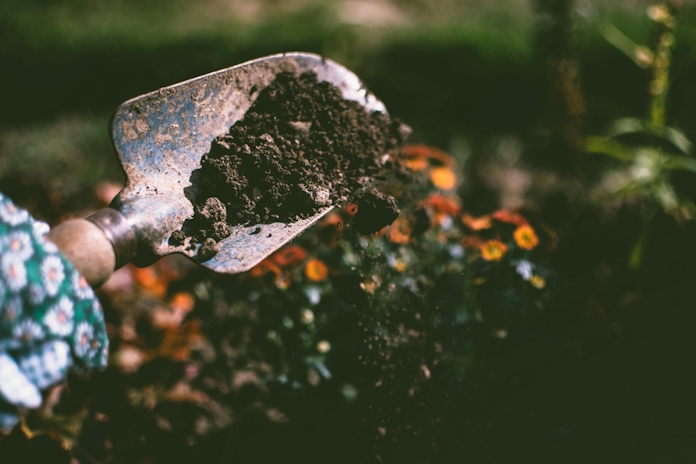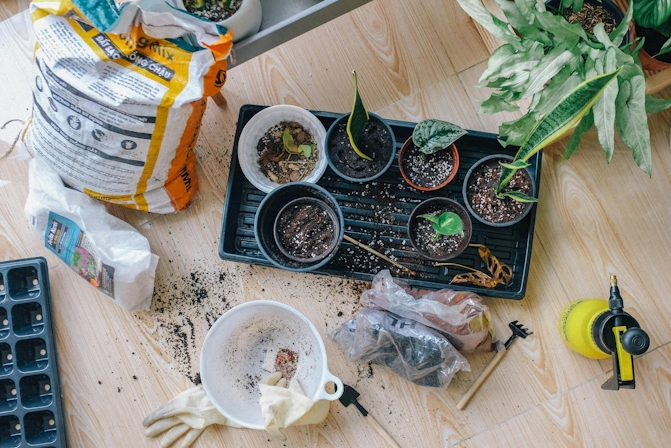
Lisa Fotios / Pexels
How To Choose The Best Growing Medium For Cannabis Plants
Coco coir, perlite, rockwool—what's the difference? There's no need to wonder, this handy guide will help you do right by your plants. Created with Rx Green Technologies.
Choosing the best growing medium for cannabis plants is one of the most important decisions to make before you grow. If you choose to grow in soil, mixing in additives like coco coir and vermiculite can help retain water and fertilizer, meaning less irrigation in the long run.
If hydroponic growing is more your jam, the right growing medium creates a buffer between your plants and your nutrient solution, protecting plants from irrigation mistakes. But, with all of the options out there, how do you know you’re choosing the right one? Here’s how popular growing mediums compare.
How To Choose The Best Growing Medium For Cannabis Plants
What’s a house without a good foundation? Quality growing mediums lay the groundwork for healthy plants. But, before you invest in a fancy soilless mix or double down on a 12-bag pallet of perlite, it’s helpful to do a little reading.
Growing Cannabis in Soil

Huy Phan / Pexels
Soil is nature’s growing medium. Made over millennia from tiny rock particles, decaying plant debris, and other forms of disintegrating organic matter, high-quality soil contains many of the basic building blocks for plant life. Soil is naturally rich in minerals and is home to thousands of species of beneficial microbes, many of which are essential for the health of the plant as it grows.
Many beginning growers opt to use soil because it’s easy and familiar. Indeed, it’s hard to go wrong with soil; there’s little need to add extra nutrients and your plants will likely grow well without too much fuss. If you’re growing for the very first time, soil is an excellent option.
So, why do some people choose against soil? While soil is excellent for hobby or casual growers, many professionals choose to grow in hydroponic solutions instead. The reason why is simple: plants may take longer to grow in soil and may not produce consistent yields.
Plus, soil-grown plants often face a greater risk of infection from diseases, as well as insect infestation. As such, those looking for a reliable grow and steady yield may want to consider a different medium.
- Pros: naturally rich in minerals and beneficial microbes.
- Cons: takes longer, greater chance of disease and infestation, cannot be used in hydroponic systems.
Growing Cannabis in Coco Coir

Karolina Kaboompics / Pexels
Advanced grow operations often replace or supplement soil with coco coir. Coco coir is coconut fiber, which is often leftover from processing coconuts for other consumer goods. Basically, coco coir is a byproduct of coconut farming—the fruit and liquid inside coconuts are sold as food goods, while coconut husks are processed into fibers. The leftovers from processing coco fiber is coco coir, which is then used in gardens.
Unlike soil, coco coir does not provide basic minerals or microbial support to growing plants. For cultivation enthusiasts, this is a blessing in disguise. Coco fiber is an excellent growing medium for hydroponically grown plants and gives growers more control over their plant’s lifecycle. Coco coir is also light and airy, which allows plenty of oxygen to reach the roots of your plants.
Plus, it’s more sustainable than other choices.
“Coco coir is a renewable by-product that mainly consists of organic matter, making it an eco-friendly choice for growers,” says Shara Finch, Lead Field Scientist at Rx Green Technologies, a company that carefully formulates researched-backed nutrients and grow products for cannabis growers.
Coco coir still has one downfall, however: it can still harbor pathogens and disease. Most coco coir comes from India and Sri Lanka, but it’s also often shipped from Mexico, Brazil, and Thailand. To ensure that the coco coir you’re purchasing is clean and safe to use, opt for products that have been lab-tested to ensure quality. Rx Green Technologies Clean Coco, for example, is triple-tested: first at the source, then as it enters the US, and then before it’s packaged for individual sale.
- Pros: better controllability, aeration, and high yields.
- Cons: requires more attention to nutrients and plant health.
Growing Cannabis in Rockwool

Neslihan Gunaydin / Unsplash
Along with coco coir, rockwool is one of the most interesting grow mediums available. Rockwool is made from a mix of melted basalt rock and slag, which is a byproduct of steel production. Incidentally, rockwool is one of the most popular growing mediums among commercial growers.
Growers use rockwool blocks to start seeds, as well as to support plants throughout their life cycle. While the substrate makes for water-resistant insulation, it’s fibrous consistency actually allows for better water retention in hydroponic systems. With rockwool, more water remains trapped inside the rockwool block for plant roots to access.
Meanwhile, the fibrous nature of rockwool also allows for greater aeration. More aeration means that plant roots have better access to oxygen. Rockwool is also more inert than coco coir, meaning that it supplies no minerals to the plant on its own. So, you’ll need to add nutrients yourself when growing in rockwool.
“Rockwool is a great choice for growers who want a reliable, uniform growing media for consistent results,” explains Finch.
Even this reliable medium, however, has some downsides. Rockwool can retain more water than coco coir, so growers should check for sufficient drainage. It also tends to be more basic, meaning that growers need to check the pH of their root zone more frequently. This makes rockwool slightly more demanding than coco coir.
- Pros: high water retention, inert, durable, and can be used during multiple seasons.
- Cons: can have a high pH, requires good drainage.
Growing Cannabis in Vermiculite

▃ Corin / Pexels
Vermiculite is a common soil additive and hydroponic medium made from expanded volcanic rock. Vermiculite is often cheaper than coco coir and rockwool, making it a popular choice for hydroponic gardeners on a budget. The substrate also holds onto moisture, meaning that both soil and hydroponic gardeners can use less water overall; vermiculite stays moist for quite a long time.
- Pros: inert, requires less irrigation.
- Cons: requires good drainage, less absorbent than other mediums.
Growing Cannabis in Perlite
Like vermiculite, perlite is a soil additive made from expanded volcanic rock. Only, there are a few key differences between the two. Vermiculite absorbs water, while perlite is light, airy, and promotes drainage. For this reason, perlite is often added to container grows. It can also be used in hydroponic systems but may require near-constant irrigation.
- Pros: inert, provides quality aeration.
- Cons: less absorbent than other mediums.
Growing Cannabis in Grow Stones
If you’re seeking a growing medium with virtually no absorbance, look no further than grow stones. Grow stones provide excellent aeration for plant roots, but they are almost non-absorbent. Grow stones work best in hydroponic setups with a constant irrigation drip. A constant drip ensures that nutrients and water make it to your plant roots.
- Pros: inert, durable, can be used during multiple seasons.
- Cons: non-absorbent.
Herb Recommended Products:
READ MORE










